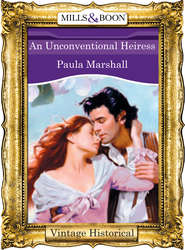По всем вопросам обращайтесь на: info@litportal.ru
(©) 2003-2024.
✖
The Beckoning Dream
Настройки чтения
Размер шрифта
Высота строк
Поля
Catherine stepped forward, just as Geordie reappeared, looking glummer than ever.
“My apologies, Master, but I lost him. There is a small wood beyond the gardens where the path forks and I must have taken the wrong track…”
“No matter.” Tom was brief. “Our friend here will soon tell us all. Begin, wife.”
Catherine questioned their captive in Dutch and then in French, being proficient in both. He understood not them, nor English either—or so his shaking head and uncomprehending face appeared to say.
Tom lost patience. He surveyed the man silently for some minutes. He was anonymous in both face and dress, being like a score such as one might see in the street. At last he leaned forward to pull the man upright.
“Wife,” he said, not turning his head towards Catherine, “do you go into the garden and not return until I call for you. I would fain question this piece of scum more severely and I would not have you present. Go!” he ordered her fiercely as she hesitated.
Nothing for it but to leave with Geordie, for Tom bade him to go with her and, “to look after the mistress with a little more care than you chased yon assassin!”
Catherine never quite knew what followed next for her back was towards Tom, Grahame and the would-be assassin when, just as she reached the door, she heard a shot behind her.
Shocked, she swung round to see Tom facing the assassin who was sinking to the floor, blood gushing from his mouth. Behind him stood Grahame, his face grim, a pistol in his hand.
“Now, why the devil did you do that?” enquired Tom of Grahame.
“To save you, of course,” returned Grahame hardily. “See, he had drawn a dagger on you, it is on the floor near his hand. I had a pistol in my belt that I was not able to use against my assailants, their attack being so sudden, and I used it to save you, as you had saved me.”
Tom’s expression was deadly, thought Catherine, shivering a little, and he did not seem at all grateful to Master Grahame for saving his life.
“No,” he said, his voice so cold and severe that Catherine scarcely knew it, “I was in no danger from this poor fool, despite his dagger. And now that you have slain him so incontinently, we can know no more of who paid him to slay you.”
Grahame’s expression was a sad one, but his voice was patient. “Forgive me. I had no time to think. I saw you being attacked, and acted accordingly.”
Tom stood silent before giving a short laugh. “No, you must forgive me. You thought I was in danger and you acted promptly. For that I must thank you. You were not to know that I have been for many years a mercenary soldier who would not easily have fallen victim to such an amateur creature as this. After all, he and his accomplice were making heavy weather of killing a solitary man, unable to use his weaponry.”
Well, Catherine thought, a trifle indignant on Grahame’s behalf, at last Tom had thanked Grahame, even if his thanks were belated.
Grahame inclined his head. “We are quits, I think,” he said, smiling. “And now you must tell me who you are, and why you have sought me out here. And, most of all, who told you where to find me. I had thought this place unknown to all my enemies, and most of my friends.
“Then, in a few short minutes, there arrive both enemies and friends, for I take you, your wife and your servant to be my friends. Indeed, if you arrived as strangers, your actions have made you my friends.”
He smiled at them, before announcing, “Wine,” and going over to a buffet—the Low Countries word for a sideboard—where stood a decanter and several goblets of fine glass, a little at odds with the rough style of the house and the furnishings of the rooms in it. “We must drink a toast to our survival.” He had needed to step over the assassin’s corpse to get there. Catherine felt quite faint at the casual way in which all three men were treating his death.
She was not surprised when Tom shook his head, saying, “Wine later. First we must decide what to do with him,” and he pointed at the body. “If I am wrong in supposing that you do not wish to inform the authorities of what has passed this day, forgive me. If I am right, however, the evidence needs to be disposed of.”
Grahame continued to pour wine as though discussing murderous attacks and the hiding of dead bodies was an ordinary, everyday matter.
“There are enough canals about here, to hide a dozen such as he. Depend upon it, no one will seek to know what happened here today. The odds are on it that his companion will not return to confess his failure. These were but poor hirelings sent to dispose of me. It was their bad luck that you arrived.”
And ours that we did, thought Catherine to whom a glass of wine seemed a most desirable thing. I have had a real baptism of fire today. If I had ever imagined that this enterprise was not a risky one, this episode has proved exactly how risky it is! I feel quite faint, but will not confess it.
She looked away from the dead man, and saw Tom gazing at her enquiringly. She gave him a small wry smile to try to tell him that, whilst she was shocked, she was not about to disgrace herself—or him—by doing anything so stupid as faint.
Pleased—and relieved—by her stoicism, Tom handed her his glass. “Drink up,” he bade her. “It will make you feel better.”
She made no demur, but drank down the good Rhenish wine, and listened to Tom and Grahame discussing what to do with the corpse.
“Your man may help me to carry this poor fool to the shed in the garden. He may lie until darkness falls when the canal shall be his resting place—for the time being, that is,” said Grahame, his manner almost cheerful.
Geordie pulled a long face, but did as he was told. Tom said nothing, but he was thinking a great deal. No stranger to violence himself, he found that Grahame’s equanimity in the face of violent death—and a violent death which he had needlessly inflicted—was telling him something of the man quite other from what Gower and Arlington had believed of him in London.
This was no puling scholar who simply paid for the information which he painstakingly—almost safely—gathered and used to sell to either the Dutch or the English government, according to whichever would pay him the most at the time. He had killed before, and would doubtless kill again.
No, Grahame was a very dangerous man and not to be trusted. And who, exactly, was trying to kill him? And why? These questions ran through Tom’s head, as he took the empty wine glass from Catherine and refilled it for himself. Other thoughts were troubling him.
Were Gower and Arlington playing a double game with him and Catherine? Had they employed the assassins who had tried to kill Grahame—and so nearly succeeded? And had he and Catherine been sent as a blind so that they might disclaim responsibility if Grahame were found murdered? Their argument being that they would scarcely waste time sending emissaries to deal with a man they intended to kill.
Or was the Grand Pensionary responsible? Was it not possible that he, like Gower and Arlington, might have tired of Grahame’s devious games, and decided to do away with him?
Worse still, were he and Catherine being manoeuvred by Gower and Arlington into a situation where they might be accused of killing Grahame? The possibilities were endless; instead of cursing poor Catherine’s presence, as he had been doing, might he not be better employed asking himself why he had been so foolish as to agree to this dubious venture at all!
“So, sir,” Grahame said, handing Tom his glass of Rhenish and seating him in a large chair opposite to him, Geordie having been left in the garden to keep watch at the back of the house. “Pray tell me who you are, and why I am honoured by your presence,” and he lifted his glass to Tom, almost fawning on him.
Oh, the greasy swine! Tom had difficulty in not laughing out loud at such a seductive attempt to charm. There was something odd about Grahame, but exactly what the oddness consisted of Tom did not yet know.
“My name is Thomas, Tom, Trenchard. I am a member of that family, noted as a supporter of the late Lord Protector. Colonel Ned Trenchard, now a soldier for the Hapsburgs and the Empire, is a distant cousin. I met him once in Nurnberg, when I was still a mere lad.”
Now that, at least was true, for Tom mixed truth with lies to achieve a greater truth—as all such conspirators do, and if pushed could describe Ned Trenchard accurately, aye, and others who were opposed to King Charles as well.
“Indeed, indeed, Master Tom Trenchard. And what does this cousin of Ned Trenchard come to me for? On whose behalf? Not on his cousin’s, I dare swear.”
“No, indeed. On the contrary, for although my inclination lies towards the late Cromwell’s cause, I do not wish to see my country brought low by a foreign power, even to bring down King Charles. That were to leave us helpless before any European state which might wish to conquer us. And knowing my mind on this, I am sent by my masters in London to offer you what they believe you most dearly wish…”
Tom paused, and waited for Grahame to answer.
“And that wish is? Tell me, Master Trenchard, since you have just claimed to know my mind, what my mind is.”
Oh, a devil! A most cunning devil! He and Tom were a good pair, were they not? This was Catherine’s immediate reaction to this conversation between two men, neither of whom could be trusted to tell the truth. She waited for Tom’s answer.
It was his turn to raise his glass to Grahame before speaking. “Why, Master Grahame, I believe that you have a great mind to return to the land of your birth, but that you do not wish to meet the headsman’s axe shortly after arriving there!
“That being so, I am to inform you that a pardon awaits you if you give my masters, through me, not only what you know of the dispositions of the Dutch Army and Navy, but also what you have learned of the arrangements of the French forces. You see, I am being frank with you,” Tom ended, trying to look as sincere as a man being insincere could.
“Oh, I do like a frank man,” exclaimed Grahame, “frankness not being much of a commodity on any exchange these days! You will, I know, be well aware that I may not be equally frank back. For it is my head that will roll if I accept this offer at face value. Pray forgive me for speaking the language of commerce, but we are in the Low Countries where commerce reigns, and commerce is what we are engaged in, is it not? Yes, I must have time to think.”
“I am authorised to give you time,” Tom told him, “but not a great deal of it.” Which last, at least, was truthful.
He had not expected, nor had Gower or Arlington, that Grahame would fall on his neck, and agree to come home immediately—hence their insistence that Catherine accompany him to act as bait.
Grahame’s next words were unexpected. “Your wife speaks Dutch well, and French also, not always accomplishments which English women possess. How so?”
Truth would serve again, Tom thought, and Catherine should tell it. “My wife must answer you, Master Grahame, if she be so willing.”
So this was to be her baptism into the devious business of spying. She must not falter—nor did she, saying eagerly, “Indeed, husband. My father was married to a Dutch lady of good birth who spoke both Dutch and French well, and insisted that I learned to speak both languages well. And Latin, too, for she thought that girls as well as boys should have the education that the Dutch gave them, which the English do not.”











